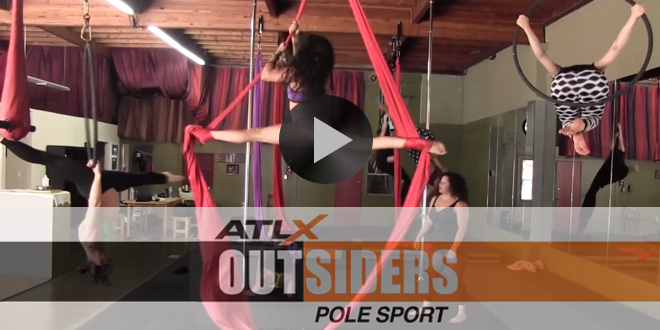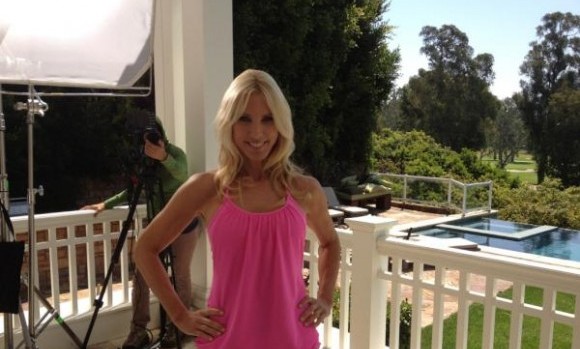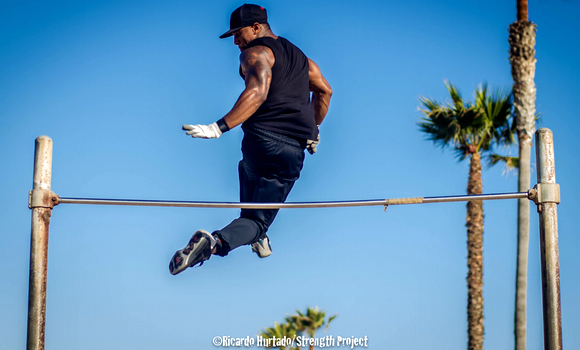By: Sarah McWilliams
 An ultramarathon is any race over the standard 26.2 miles of a normal marathon. Ultramarathoners typically compete in races 50 kilometers and up, and a 100-mile race is fairly common for this sport. But why would anyone want to run that far and that long, and how could they possibly find the time to train for that length of race?
An ultramarathon is any race over the standard 26.2 miles of a normal marathon. Ultramarathoners typically compete in races 50 kilometers and up, and a 100-mile race is fairly common for this sport. But why would anyone want to run that far and that long, and how could they possibly find the time to train for that length of race?
The thought of running 100 miles was probably insane to Anji Nussbaumer when she was running track in college, but now she proudly calls herself an ultrarunner, and when you hear her perspective on it, it’s really not that crazy at all.
Nussbaumer doesn’t necessarily have unique athletic abilities, but what sets her apart from others is that she is a “yes” person. She will try anything at least once, and maybe the lesson here is that all of these things aren’t that crazy if you’re willing to give it a chance.
And that’s how she found the sport of ultrarunning. After two years of running track at Kent State University, she left the sport, and like many former athletes found a void from the challenge and the competition. She started small, 5Ks and 10Ks, and then a half-marathon. And while the natural progression would’ve then been a full marathon, her yes attitude — along with the encouragement of a training partner who saw Angie enjoying the longer runs — led her to instead take on a 50K along the New River in Virginia.
“My training partner said, ‘there’s this beautiful race up in Virginia, it’s along the New River, it’s flat, you can kind of walk, it will just be a long day,’” Nussbaumer said. “And I thought, ‘why not? If she’s going to go slow then how bad could it be?’”
 At the end of the race, Nussbaumer discovered just how painful running for seven hours can be, but she was also so exhilarated by the feeling of accomplishment that she had to do more. Suddenly she was signing up for all sorts of races, including a 24-hour race.
At the end of the race, Nussbaumer discovered just how painful running for seven hours can be, but she was also so exhilarated by the feeling of accomplishment that she had to do more. Suddenly she was signing up for all sorts of races, including a 24-hour race.
While these types of races sound crazy to anyone who hasn’t tried it, Nussbaumer is quick to point out that she has never been injured from ultras, and unlike most sports where there is a timestamp on athletes, typically somewhere in their 20s or 30s, ultrarunners can excel throughout their lifetime.
“Ultra is such a great sport especially because a lot of the racers, (and) a lot of the faster women, are older,” said Nussbaumer, who added that the social aspect and camaraderie amongst the runners is also a big draw to the sport. “It’s a whole community. There’s beer drinking and partying. It’s a sense of community, and a sense of accomplishment.”
The training also takes less time than one would think. Nussbaumer, in fact, considers herself a low-mileage trainer, and even those logging heavier mileage still are able to have a social life, although for some their social life and their sport become entwined.
“It’s two to three hours on the weekends,” Nussbaumer said. “I could sleep in or sit around on the couch, or I could be out running, and I just prefer to be outside and out running.”
 Even though she makes good points, and it does kind of sound like fun, it’s still hard to be convinced to take on that type of challenge. But then again, Nussbaumer doesn’t just run for herself.
Even though she makes good points, and it does kind of sound like fun, it’s still hard to be convinced to take on that type of challenge. But then again, Nussbaumer doesn’t just run for herself.
“My dad is severe asthmatic so he can’t run. My running career has been a reflection of ‘I run because he can’t,’” Nussbaumer said. “And I run because I can tolerate miles and miles. I also say, ‘I run because you won’t.’ People won’t run ultras but they don’t realize there is nothing to be afraid of.”
So how long is Nussbaumer going to be running? Probably as long as she can. With the vast amount of races in some of the most beautiful locations in world, she doesn’t foresee getting bored with the sport. And since the speed is slower with ultras, injuries aren’t a major concern either.
“With marathons it’s kind of a short circuit. You can (do) Boston or New York or Berlin, but with Ultras there are endless races,” Nussbaumer said. “Barring any major changes or any major injuries, I’ll probably be the 60- or 70-year-old grandma shuffling.”
 ATLX The only sports entertainment television and digital media network fully devoted to everyday athletes, athletic lifestyle and athletic culture.
ATLX The only sports entertainment television and digital media network fully devoted to everyday athletes, athletic lifestyle and athletic culture.




